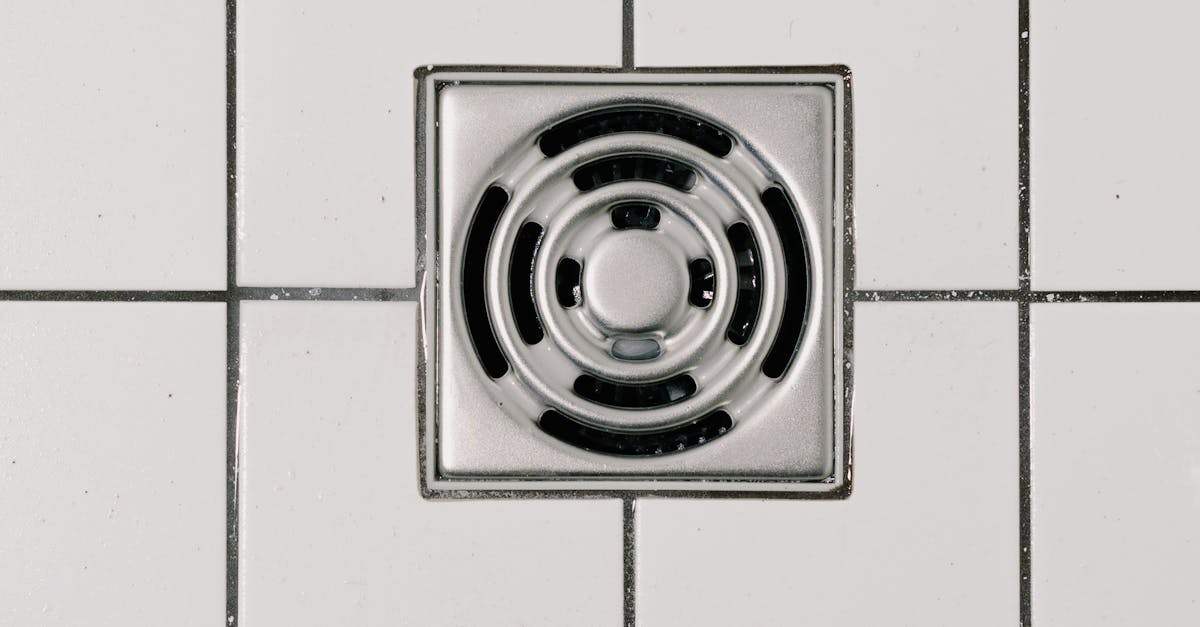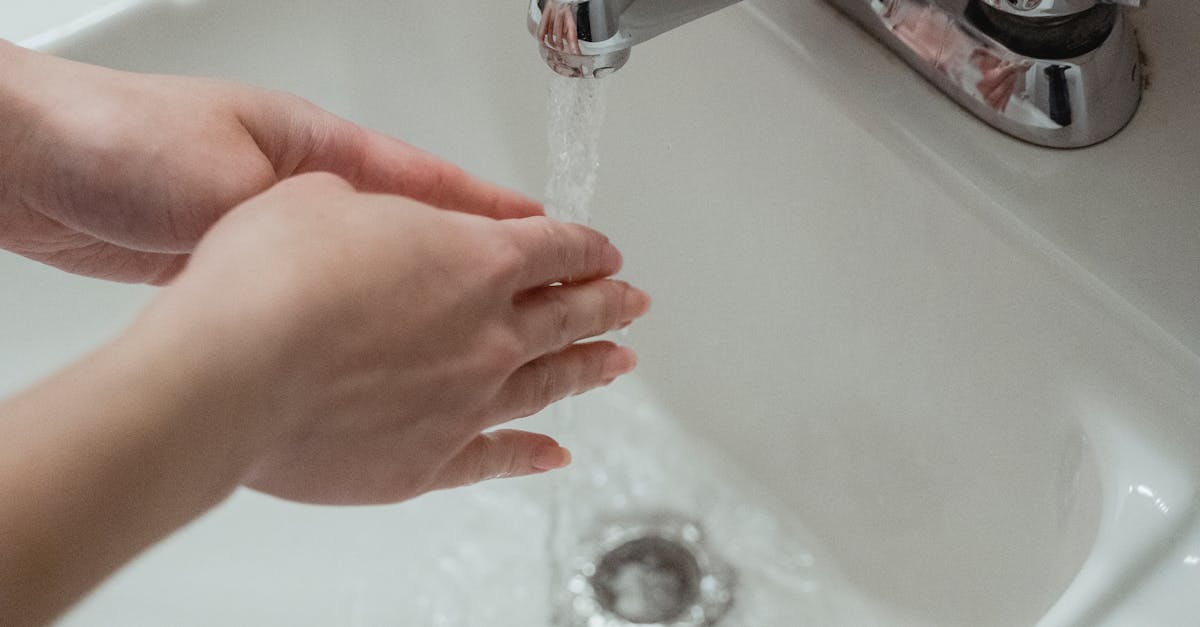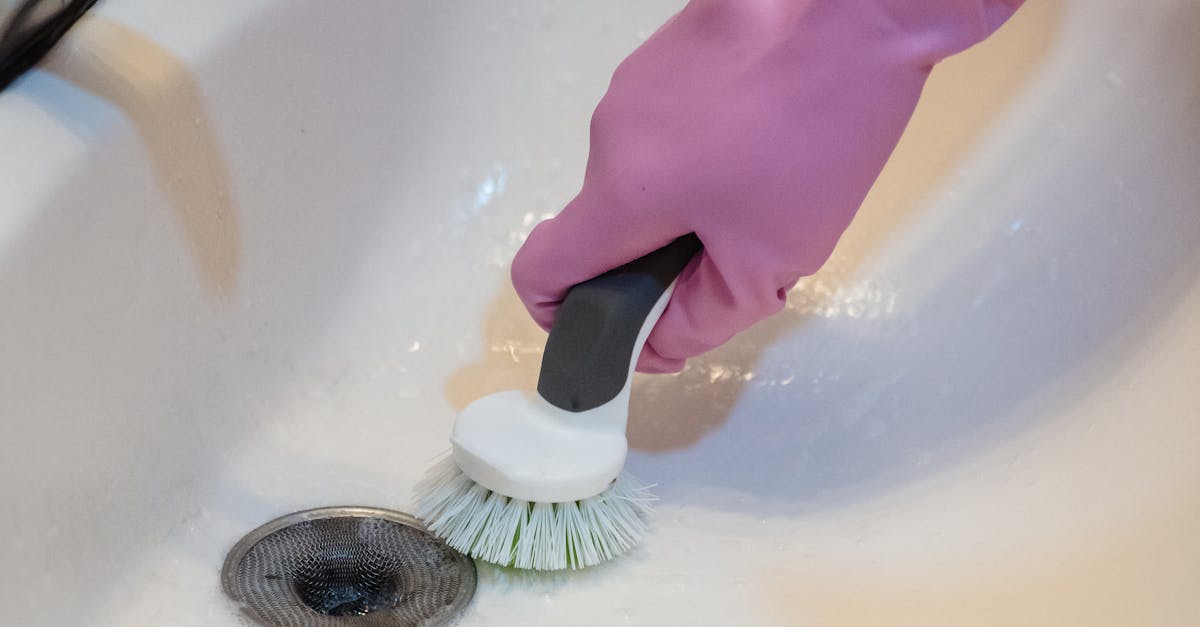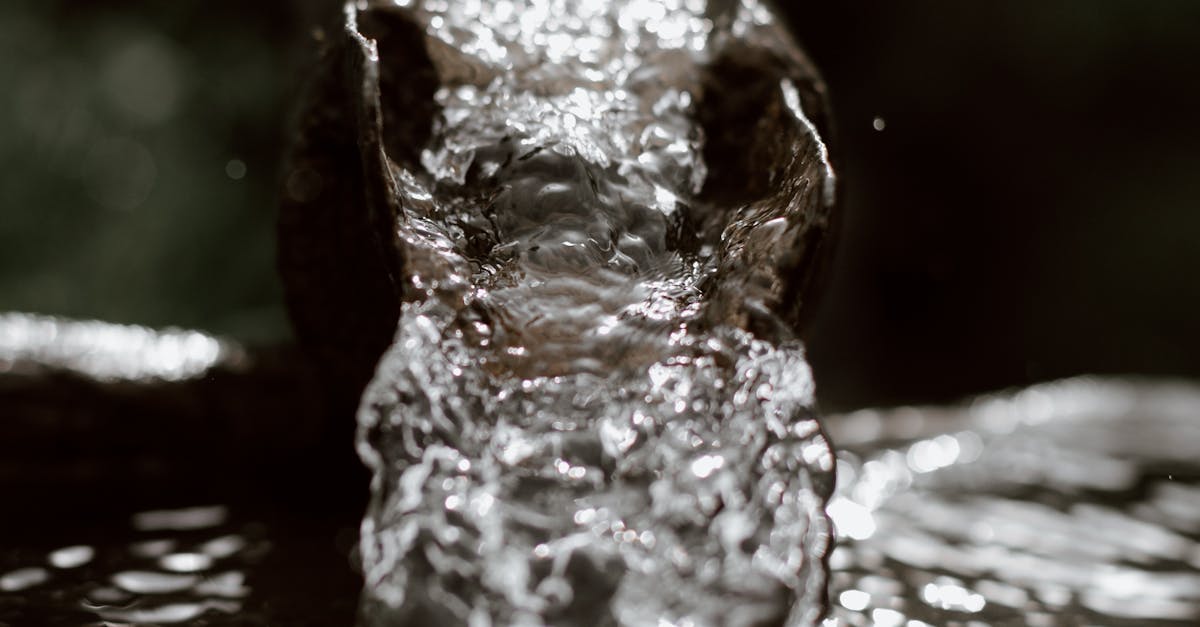
Table Of Contents
Tips for maintaining healthy drains
To keep your drains in good working condition, regular maintenance is key. One simple maintenance practice is to flush hot water down the drain regularly. This helps clear out any build-up and keeps the pipes flowing smoothly. Another effective method is using baking soda and vinegar for drain cleaning. This natural concoction can help break down grease and debris in the pipes, preventing clogs and odours.
In addition to DIY methods, it's crucial to be mindful of what goes down your drains. Avoid pouring oils, fats, and coffee grounds down the sink as they can solidify and cause blockages. Installing drain guards can also help prevent hair and other debris from accumulating in the pipes, reducing the chances of clogs. Regular maintenance and mindful practices can go a long way in keeping your drains healthy and free-flowing.
Regular maintenance practices
Regular maintenance practices for plumbing are essential to prevent clogs and maintain healthy drains. In addition to avoiding pouring grease and coffee grounds down the drain, a simple and effective way to keep drains clear is through regular maintenance using natural ingredients. Baking soda and vinegar offer a safe and environmentally friendly option for drain cleaning. By pouring a mixture of baking soda and vinegar down the drain followed by hot water, you can help break down buildup and prevent blockages. This simple DIY method can be done regularly to maintain the smooth flow of water in your pipes.
Common misconceptions about baking soda and vinegar for drains
When it comes to drain cleaning, there are various misconceptions surrounding the effectiveness of using baking soda and vinegar. One common belief is that pouring a mixture of baking soda and vinegar down the drain can effectively clear clogged pipes. While this method may create a fizzy reaction that seems promising, it actually has limited impact on tough clogs or blockages within the plumbing system. The reality is that the combination of baking soda and vinegar is more suitable for mild cleaning purposes rather than as a solution for serious drainage issues.
Another misconception about using baking soda and vinegar for drain cleaning is that it can eliminate foul odours emanating from the pipes. While the chemical reaction between these two substances may temporarily mask odours, it does not address the root cause of the smell, which could be due to bacterial build-up or decaying matter inside the drain. Therefore, relying solely on baking soda and vinegar to tackle odour issues in drains may provide only a short-term solution.
Debunking popular myths
There is a popular misconception that using baking soda and vinegar is an effective method for unclogging drains. Many believe that this combination creates a powerful fizzing reaction that can break down debris and clear blockages. However, according to experts in the plumbing industry, this method is not as effective as commonly thought. While baking soda and vinegar can produce a fizzy reaction, this does not necessarily translate to a thorough cleaning of the drain.
Another myth surrounding drain cleaning is the idea that baking soda and vinegar can eliminate foul odours emanating from the pipes. Although this mixture might temporarily mask unpleasant smells, it does not address the root cause of the odour. Professional plumbers emphasise the importance of diagnosing and resolving the underlying issue causing the unpleasant smell, rather than relying solely on baking soda and vinegar as a long-term solution.
Professional opinions on using baking soda and vinegar
Professional opinions on using baking soda and vinegar vary within the plumbing community. While some plumbers advocate for the use of this natural combination for drain cleaning due to its eco-friendly nature, others express caution. One concern is that the effervescent reaction between baking soda and vinegar may not be strong enough to effectively clear tough clogs in drains. Additionally, some professionals argue that the abrasive nature of baking soda can potentially damage older pipes, leading to costly repairs.
Despite the ongoing debate, many experts agree that baking soda and vinegar can be used as a preventative measure in maintaining clean drains. By regularly flushing drains with this mixture, mild blockages can be minimised, and foul odours can be neutralised. However, it's important to note that for significant clogs or persistent drainage issues, seeking professional help is crucial to avoid worsening the problem.
Expert recommendations
When it comes to maintaining your drains, seeking expert recommendations is essential. Professionals in the plumbing industry generally advise caution when using baking soda and vinegar for drain cleaning. While this combination is often promoted as a natural and eco-friendly solution, it may not always be the most effective method for clearing clogs or preventing build-up in pipes. To ensure the optimal functionality and longevity of your drainage system, consulting with a licensed plumber is highly recommended before attempting any DIY remedies involving baking soda and vinegar.
Expert plumbers stress the importance of using products and methods specifically designed for drain cleaning. While baking soda and vinegar may offer temporary relief by creating a fizzing reaction that helps break down some debris, they may not be sufficient for more significant blockages or issues within the plumbing system. Professional-grade drain cleaners are formulated to effectively dissolve grease, hair, soap scum, and other common culprits of clogs without causing damage to pipes. Prioritising the use of proven drain cleaning products endorsed by industry experts can help maintain the health and functionality of your drains in the long run.
FAQS
Can baking soda and vinegar be used to clean drains?
Yes, baking soda and vinegar can be used to clean drains as a natural alternative to harsh chemicals.
Are baking soda and vinegar safe for all types of drains?
Baking soda and vinegar are generally safe for most types of drains, but it is recommended to check with the manufacturer if you have concerns about specific materials.
Will using baking soda and vinegar damage my pipes?
When used in moderation and followed by hot water, baking soda and vinegar are unlikely to damage pipes. However, it's best to avoid using them in large quantities or together with other chemicals.
How often can I use baking soda and vinegar to clean my drains?
It is safe to use baking soda and vinegar to clean drains once a month as part of regular maintenance. Avoid overusing them, as it may lead to complications.
Can baking soda and vinegar prevent clogs in drains?
Baking soda and vinegar can help prevent minor clogs by keeping drains clear of buildup when used regularly. However, they may not be effective for severe blockages that require professional attention.


